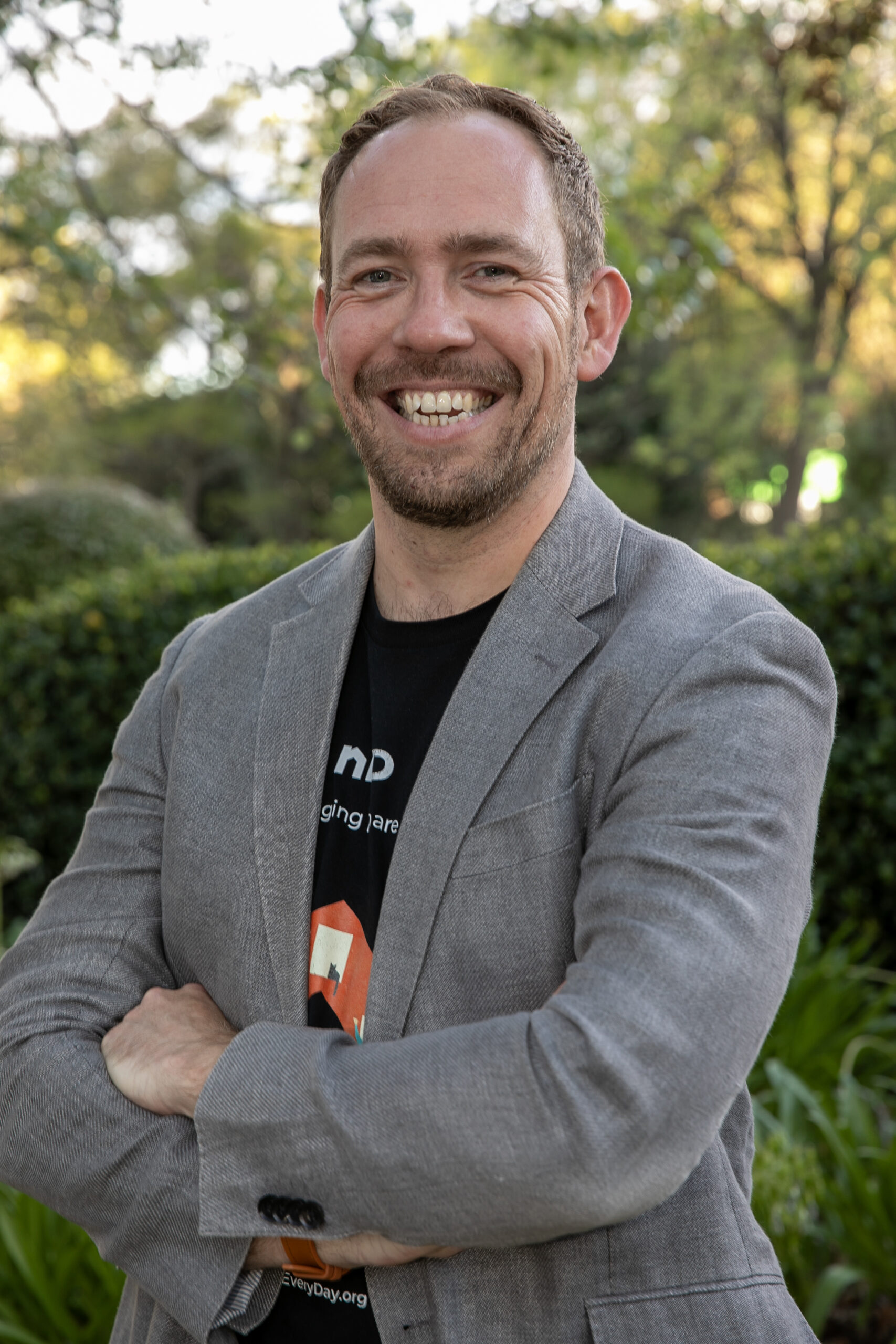As we approach World Mental Health Day on 10 October, I find myself genuinely optimistic about Australia’s future. Not because the challenges facing our communities have diminished—they haven’t. With over 5.1 million people across the country reporting frequent loneliness, we’re facing a social connection crisis that touches every corner of our nation. But I’m optimistic because I believe we’re at a pivotal moment where the right approach, at the right time, with the right support, could genuinely transform how we all experience belonging in our communities.
Today we’re launching the refreshed Neighbours Every Day campaign with a theme that goes to the heart of this opportunity: “Belonging Every Day.” This isn’t just a catchy slogan—it represents a fundamental shift in how we think about connection and community in Australia.
For too long, we’ve treated belonging as something that either happens naturally or doesn’t happen at all. We’ve assumed that if we create the right event or program, belonging will magically emerge. But what I’ve learned over a decade working with Australian communities is that belonging isn’t a destination—it’s a practice. It’s something we create through everyday choices, actions, and words, moment by moment, conversation by conversation.
This shift in thinking couldn’t come at a more crucial time for our social cohesion. When I look at the divisions and tensions emerging in communities across Australia—whether it’s around housing pressures, cultural diversity, economic uncertainty, or generational differences—I see the symptoms of disconnection. People retreat into smaller and smaller circles, trust erodes, and we lose sight of what we share in common.
But belonging has this remarkable power to bridge divides. When someone feels genuinely seen and valued in their community, when they know their neighbours care about them as a person, when they have a role to play in something bigger than themselves—that’s when we start to rebuild the social fabric that holds our communities together. That’s when difference becomes diversity rather than division.
What gives me such confidence that we can make this shift is the recognition our approach is receiving from organisations that understand the stakes. Being endorsed this year in Australia’s National Suicide Prevention Strategy as a leading prevention initiative tells us that connection isn’t just nice to have—it’s literally life-saving. When the World Health Organisation referenced our campaign in their 2025 Social Connection Report as an innovative, community-based model, it signalled that what we’re doing here in Australia could be a blueprint for addressing loneliness globally.
This recognition matters because it creates momentum. It gives local councils, community organisations, businesses, and individuals permission to prioritise connection work. It validates what many people feel intuitively but haven’t had the language or framework to act upon.
In my daily work, I see evidence everywhere that people across Australia are hungry for this kind of belonging. When 85% of people who engage with our campaign report knowing their neighbours better afterward, and 99% of those connections endure over time, we’re not just seeing temporary feel-good moments—we’re witnessing sustainable community change. When 63% report improvements in their mental health, we’re seeing the direct link between belonging and wellbeing play out in real lives.
But perhaps what moves me most are the stories behind these statistics. The recently arrived migrant family who finds their place in the neighbourhood through a simple street gathering. The widower who rediscovers purpose by sharing his gardening knowledge with young families. The single parent who realises they’re not alone when neighbours rally around them during a difficult time. These aren’t just heartwarming anecdotes—they’re examples of social cohesion being rebuilt one relationship at a time.
And of course, it doesn’t hurt that this approach is proven to be highly cost-effective and economically viable. Independent research by the Australian National University and University of Queensland shows our campaign delivers outcomes at just $4,667 per Quality-Adjusted Life Year—making it significantly more cost-efficient than many mainstream public health interventions. When governments at all levels are grappling with budget pressures, knowing that connection work delivers exceptional value for money removes a significant barrier to investment.
But for me, the economic case, while compelling, is secondary to the human case. We have an opportunity right now to create an Australia where everyone feels they belong—not just on special occasions, but every single day. We can build communities that are resilient in the face of challenges because they’re connected. We can strengthen our social cohesion by giving people reasons to care about each other.
The theme “Belonging Every Day” is both an invitation and a challenge. It invites us to see belonging as something we can all contribute to, regardless of our circumstances. It challenges us to move beyond thinking about connection as someone else’s job—whether that’s governments, community organisations, or social services—and recognise it as something we all create together.
As we approach Neighbour Day on Sunday 29 March 2026, I’m not just hoping for another successful day of community connection. I’m envisioning a year where belonging becomes embedded in how we show up for each other, where inclusion becomes second nature, where every Australian knows they matter to someone in their community.
This is our moment. The recognition is there, the evidence is compelling, the need is urgent, and the opportunity is unprecedented. Together, we can create communities where everyone belongs—not just on Neighbour Day, but every day.
I’d love to hear how you’re already creating belonging in your community, and your ideas for making it an everyday practice. Share your stories using:
#NeighboursEveryDay #BelongingEveryDay #NeighbourDay2026
Nick Tebbey is the National Executive Officer of Relationships Australia, the home of the Neighbours Every Day campaign.
For crisis support please call Lifeline on 13 11 14. If you are in immediate danger call 000.

